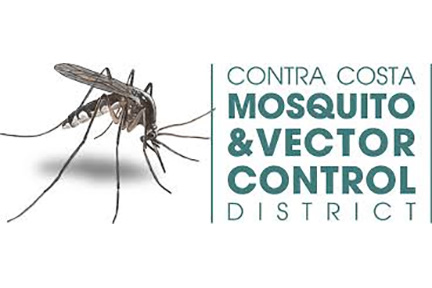CONCORD, CALIFORNIA – The Contra Costa Mosquito & Vector Control District is reporting one chicken from the District’s sentinel chicken flock on Holland Tract, near Knightsen has tested positive for antibodies against West Nile virus. This is the first sign of West Nile virus activity in Contra Costa County this year.
The District urges county residents to take precautions to prevent mosquito bites including the use of repellents during peak mosquito time — dawn and dusk.
According to the District’s Scientific Programs Manager Steve Schutz, Ph.D., “In the 15 years since West Nile virus arrived in Contra Costa County, this is the latest in the season that we have detected the first evidence of virus transmission. Nevertheless, the risk of human cases tends to be highest at this time of year, because mosquitoes that have previously fed on birds are more likely to bite people. Hot weather also accelerates mosquito development and virus growth and may put residents at higher risk of mosquito-borne disease. It is important for residents to dump out standing water, report dead birds and wear repellent when mosquitoes are present.”
The District’s county-wide surveillance program includes flocks of chickens that serve as sentinels. When a chicken is bitten by an infected mosquito, the chicken develops antibodies to fight off the virus. District employees take a small blood sample from each chicken during the warmest months of the year, to test for signs of West Nile virus. Samples that test positive for antibodies provide evidence of virus transmission in specific areas of the county and help the District determine locations for prevention and control efforts.
Unlike chickens, which develop antiboties and survive, certain wild birds, particularly ravens, crows and jays, are highly susceptible and frequently die when infected with West Nile virus. These dead birds can also be tested and can provide early evidence of West Nile virus in the county.
The District asks residents who find a dead bird to report it to the statewide West Nile Virus Hotline online or by calling (877) WNV-BIRD (968-2473).
Residents can reduce their risk of contracting West Nile virus and other mosquito-borne diseases by:
- Dumping or draining standing water. All mosquitoes develop from egg to adult in water.
- Defending yourself – use repellents containing DEET, Picaridin, or Oil of Lemon Eucalyptus.
- Avoiding the outdoors when mosquitoes are present, typically dawn and dusk.
For a list of Contra Costa County’s 2019 West Nile virus activity and locations, visit the District’s website.
Since 2005, 65 people in Contra Costa County have been diagnosed with West Nile virus. In 2006, two people died from the disease. For current human case information, please contact Contra Costa Health Services at 888-959-9911.
Contra Costa Mosquito & Vector Control District, an independent special district and public health agency, is located at 155 Mason Circle in Concord. Contact the District to report mosquito problems online or at (925) 685-9301. Visit the office between 8:00 a.m. and 4:30 p.m. to pick up mosquitofish for ornamental ponds, horse troughs or neglected swimming pools.

